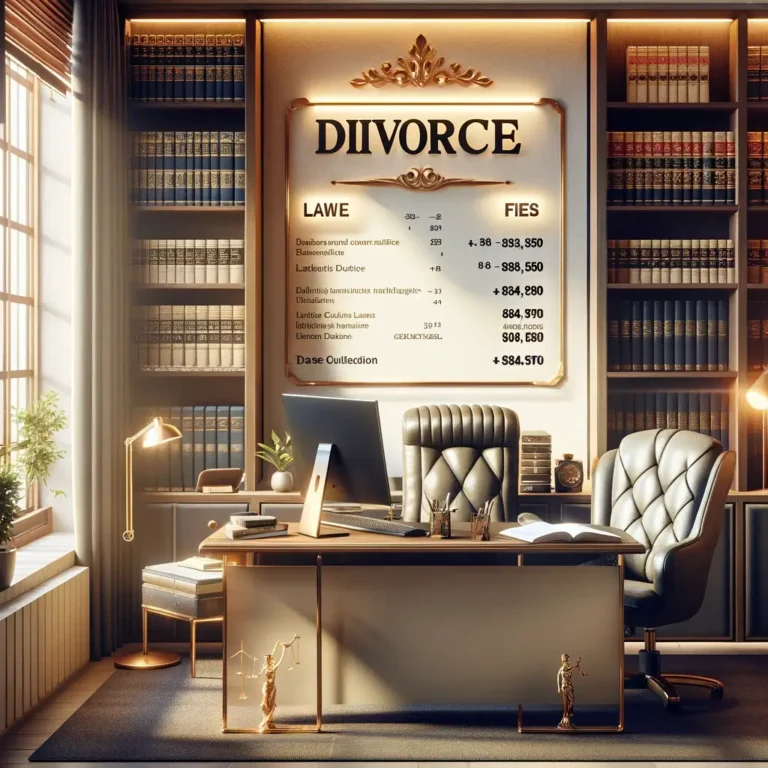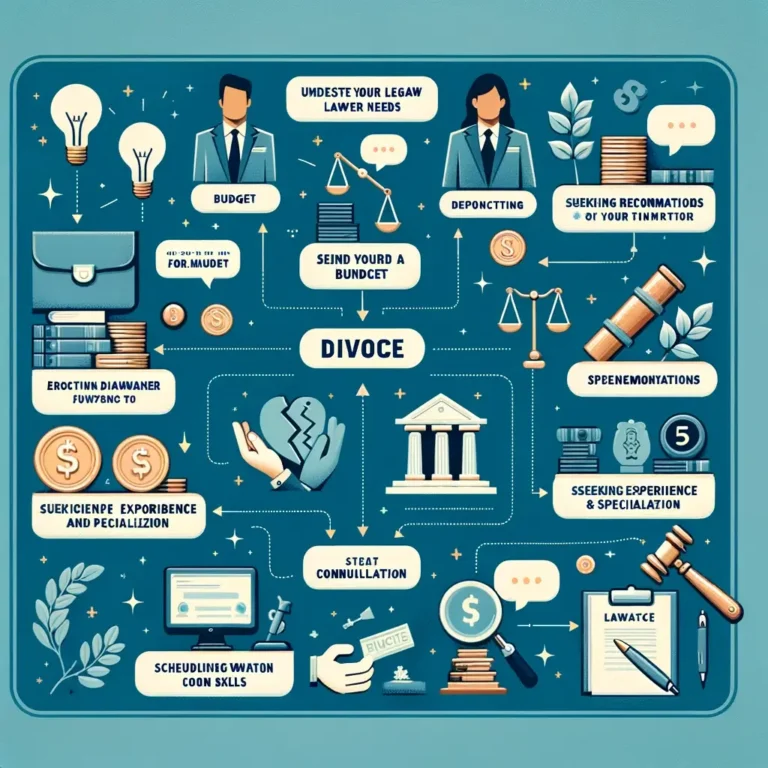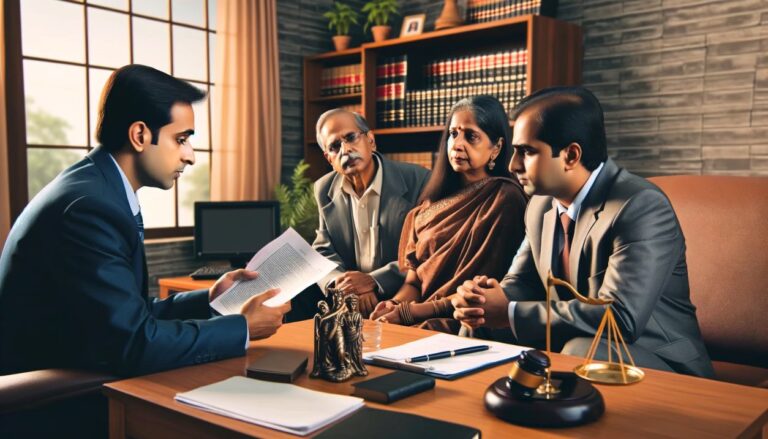Divorce often feels like an emotional storm, stirring up a mix of feelings – from sadness and anger to uncertainty and confusion. It’s more than a legal process; it’s a life-changing journey. Amidst this turmoil, a pressing question looms: Do you need a lawyer to help navigate through your divorce?
The answer isn’t black and white. It’s shaded by the unique complexities of your personal situation. This guide aims to shed light on this question, helping you make a decision that’s informed, confident, and right for you.
Do I need a lawyer to navigate my divorce?
Scenario 1: The Path of Mutual Understanding
- Picture this: You and your spouse are parting ways amicably. You agree on key issues like child custody, asset division, and spousal support. Your finances are uncomplicated, with no minor children in the mix.
- In this scenario, you might opt for a do-it-yourself divorce, using online resources or legal document kits. But walk carefully, as even amicable divorces require adherence to legal protocols.
Navigating Mutual Divorce: Discover more about mutual divorce in India and its nuances: Mutual Divorce in India
Scenario 2: When the Waters Get Rough
- Here, the seas are choppier. Disagreements are frequent, whether it’s about who gets the house, who pays for child support, or how assets are split. Maybe you have substantial assets, complex debts, or run a business together.
- Children might be in the picture, making their well-being a top priority.
- This is where a lawyer isn’t just helpful – they’re essential. They’re not just your legal navigator but your advocate, fighting for your rights, and striving for a resolution that protects your interests.
Exploring Contested Divorce: Learn more about the intricacies of contested divorce in India Contested Divorce in India
The Power of Legal Expertise in Divorce
In the Trenches of Custody Battles: Your lawyer is more than an advisor; they are your champion in court, advocating for the custody arrangements you believe are best for your children.
The Art of Asset Division: Divorce can turn the division of marital assets into a complex maze. Your lawyer doesn’t just guide you through it; they help ensure you come out on the other side with your financial future intact.
Navigating the Rapids of Spousal Support/Alimony: Whether you’re on the giving or receiving end of alimony, your lawyer’s expertise is crucial. They don’t just represent you; they strive to secure your financial stability for the years to come.
Your Shield Against Legal Pitfalls: The legal landscape of divorce is riddled with potential pitfalls. Your lawyer is your protector, meticulously reviewing every document to safeguard your interests.
Embracing the Journey with the Right Support
- A lawyer is more than an expense; they’re a vital investment in your future.
- Free or low-cost consultations can offer a glimpse into your legal landscape.
- Research is key. Find a lawyer who’s not just experienced in family law but empathetic to your story.
Choosing to hire a lawyer is a deeply personal decision. It’s about understanding the intricacies of your divorce and recognizing when you need an expert to guide you through. In this challenging chapter of your life, a skilled lawyer can be the beacon that leads you to a new beginning.
FAQ (FREQUENTLY ASKED QUESTIONS)
General Questions:
- Q: Do I need a lawyer for my divorce?
- A: The need for a lawyer depends on the complexity of your situation. In some cases, legal guidance is essential, while in others, it might not be necessary.
- Q: What are the advantages of hiring a lawyer for a divorce?
- A: Lawyers provide expertise in family law, ensure your rights are protected, and navigate complex legal procedures on your behalf.
- Q: Can I navigate my divorce without a lawyer?
- A: In straightforward, uncontested divorces, some individuals choose to proceed without legal representation. However, it’s advisable to seek legal counsel to review agreements.
- Q: What factors determine if I need a lawyer for my divorce?
- A: Factors such as asset complexity, child custody issues, and the level of conflict between parties often dictate the need for legal representation.
- Q: How can a lawyer assist in child custody disputes during a divorce?
- A: A lawyer helps protect your parental rights, negotiates custody arrangements, and ensures the child’s best interests are prioritized.
Legal Considerations:
- Q: Will I lose out on rights or entitlements if I don’t have a lawyer during my divorce?
- A: While it’s possible to represent yourself, a lawyer ensures that your rights are safeguarded and secures a fair settlement.
- Q: What are the risks of navigating a divorce without legal assistance?
- A: Without legal counsel, you might miss critical legal procedures, misunderstand your rights, or receive an unfair settlement.
- Q: Can a lawyer expedite the divorce process?
- A: Lawyers streamline proceedings, but the timeline depends on various factors, including court schedules and the complexity of the case.
- Q: How does a lawyer assist in property division during a divorce?
- A: They ensure fair distribution of assets and liabilities, especially in cases involving complex property holdings or shared businesses.
- Q: What happens if my spouse has a lawyer, and I don’t?
- A: It’s advisable to seek legal representation to ensure your interests are protected and to navigate the proceedings effectively.
Financial Considerations:
- Q: Will hiring a lawyer increase the cost of my divorce?
- A: Legal fees are an expense, but a lawyer can prevent costly mistakes and negotiate favorable terms, potentially saving money in the long run.
- Q: Can I get a fair settlement without a lawyer?
- A: While it’s possible, a lawyer’s expertise in negotiations and understanding of your entitlements can significantly impact the fairness of your settlement.
- Q: Can I handle financial aspects of the divorce on my own?
- A: If finances are straightforward, you might navigate this independently. However, legal counsel can ensure a fair division of assets and debts.
- Q: Can a lawyer help with spousal support or alimony negotiations?
- A: Yes, a lawyer advocates for fair spousal support based on factors like income, duration of marriage, and contributions to the household.
- Q: Can a lawyer assist in navigating tax implications during divorce settlements?
- A: Lawyers consider tax consequences in settlements, ensuring financial agreements align with tax laws and minimize potential tax burdens.
Process and Representation:
- Q: Do I need to attend court if I have a lawyer?
- A: In most cases, your lawyer represents you in court, sparing you the need to attend every hearing.
- Q: How involved do I need to be if I have a lawyer handling my divorce?
- A: While your lawyer manages legal proceedings, your input is crucial, especially in decisions affecting your future and your family.
- Q: Can I change lawyers during the divorce process?
- A: Yes, you have the right to change lawyers if you’re dissatisfied, though it’s advisable to consider the timing and potential impact on your case.
- Q: How can I find a reliable lawyer for my divorce?
- A: Research reputable family law attorneys, seek referrals, and schedule consultations to find a lawyer who fits your needs and understands your situation.
- Q: Can a lawyer provide emotional support during a divorce?
- A: While not a primary role, lawyers offer guidance and support throughout the legal process, easing some emotional burdens.
Uncontested Divorces:
- Q: Can I proceed with an uncontested divorce without a lawyer?
- A: It’s possible, but it’s wise to have a lawyer review any agreements to ensure they align with your best interests and adhere to legal standards.
- Q: What defines an uncontested divorce?
- A: An uncontested divorce occurs when both parties agree on all terms, including asset division, child custody, and support, without the need for court intervention.
- Q: Can a lawyer help in amicable, uncontested divorces?
- A: Even in amicable divorces, a lawyer can review agreements, provide legal guidance, and ensure your interests are protected.
- Q: Is mediation an alternative to hiring a lawyer for an uncontested divorce?
- A: Mediation involves a neutral third party facilitating discussions. While it can be helpful, having a lawyer review agreements after mediation is advisable.
Legal Guidance and Advice:
- Q: Can I seek legal advice without hiring a lawyer for the entire divorce process?
- A: Yes, some lawyers offer consultation services, providing advice or reviewing documents on an as-needed basis.
- Q: Will a lawyer recommend options beyond litigation for resolving my divorce?
- A: Experienced lawyers often explore mediation, collaborative divorce, or negotiation as alternatives to traditional litigation, depending on your circumstances.
- Q: How does hiring a lawyer affect the level of conflict in a divorce?
- A: While a lawyer advocates for your rights, they also aim to reduce conflict and encourage fair resolutions through negotiation or mediation.
- Q: Can a lawyer help with post-divorce issues, such as modifications or enforcement of court orders?
- A: Yes, lawyers assist with post-divorce matters, ensuring court orders are enforced or modified based on changing circumstances.
- Q: Can I get free legal aid for my divorce if I can’t afford a lawyer?
- A: Some organizations offer pro bono or low-cost legal services to individuals who meet specific financial criteria. Research local resources for assistance.
- Q: What’s the first step in determining if I need a lawyer for my divorce?
- A: Schedule consultations with experienced family law attorneys to assess your situation, understand your options, and make an informed decision based on their advice.
















